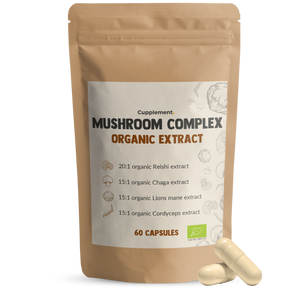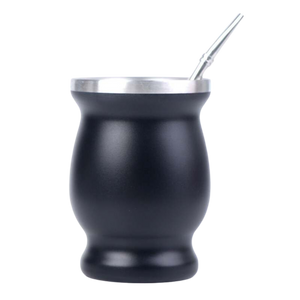Is coffee good or bad for my health? This is a frequently asked question that we at Cupplement get on a regular basis. Like almost any food product, there are pros and cons to coffee who are happy to express their opinion about drinking coffee. We list the top 10 most well-known advantages and disadvantages of coffee. This way you can make a good assessment yourself whether coffee is healthy for you.
The nutritional value of coffee
Coffee is a natural product and is naturally rich in antioxidants. These antioxidants (such as vitamins, for example) support your body in tackling aggressive substances in your body that can damage cells or tissue (source). In addition, coffee contains hardly any fats or calories. For example, there are less than 2 kcal in 1 cup of 250 ml coffee (source). This is also an important reason why coffee is often combined with a (KETO) diet or drunk for weight loss.
The benefits of coffee
1. Less chance of cardiovascular disease
There are several studies that link coffee to the prevention of cardiovascular disease. In the radio 1 podcast, food scientist Marianne Geleijnse talks about her research into the effect of coffee on cardiovascular disease. This study showed that people who regularly drank coffee had a lower risk of cardiovascular disease than people who did not drink coffee at all. A nice advantage of coffee.
2. Positive effect of caffeine
Coffee contains caffeine. This is also one of the main reasons that people often drink coffee in the morning to wake up and start their day full of energy. Caffeine is known to have a positive effect on your energy level and your concentration (source). Caffeine also often makes you feel less tired and can promote your alertness. A number of health benefits that can be a great advantage in many cases, such as during work, study or sports.
3. Protection of the liver
Various studies have shown that drinking coffee significantly reduces the risk of liver disease (source). For example, studies have been done that have shown that with a certain level of coffee consumption, the risk of liver cancer is reduced by up to 40% (source). With this, coffee not only benefits your short-term energy and concentration level, but coffee also offers various health benefits in the long term.
The disadvantages of coffee
Disadvantages of Caffeine
One of the most well-known drawbacks is that the caffeine in coffee is unhealthy for you. The nutrition center indicates that an excess of caffeine can cause restlessness, anxiety, dizziness or palpitations (source). It only differs per person to what extent caffeine can cause these negative effects. For example, healthy adults can consume 400 milligrams of caffeine per day without causing any health effects. This equates to 4 cups of coffee per day. If you drink more than 4 cups of coffee a day or if your body is extra sensitive to coffee, you could experience the disadvantages of coffee.
Is coffee addictive?
Another much-discussed drawback is the addictiveness of coffee. Who doesn't recognize the feeling that you strongly desire a cup of coffee in the morning and conclude that you are addicted to your daily cup of coffee? This feeling is often attributed to the caffeine in coffee. Yet caffeine does not have the same addictive effect as smoking, for example, so you really cannot do without it (source). The extent to which you consume coffee also comes into play with this disadvantage of coffee. With more than 4 cups of coffee per day, the effect of caffeine on your body may be much more detrimental.
Is decaffeinated coffee healthier?
The answer to the negative effects of caffeine in coffee is often the decaf variety. Although this coffee variant often still contains some form of caffeine, this is considerably less than in a normal cup of coffee (source). Besides the lack of caffeine, a decaf differs little from a normal cup of coffee. If you drink coffee in a limited way (read less than 4 cups a day), decaffeinated coffee should not necessarily be healthier for you. However, are you sensitive to caffeine or do you tend to drink coffee throughout the day? Then the occasional decaf is a healthy alternative!
How much coffee you can drink per day
We can actually be very brief about this. Caffeine appears to be the only substance in coffee that can have a negative effect on your health. A coffee contains about 85mg of caffeine on average (source). (It is a myth that espresso contains more caffeine). With 4 cups of coffee a day, you therefore average about 340mg of caffeine, which puts you well below the upper limit of 400mg recommended by the nutrition center.
Conclusion:
Whether coffee is healthy or not is best determined for yourself. According to the nutrition center and various scientific studies, a healthy adult who does not drink more than 4 cups of coffee a day would experience no physical complaints. In fact, they would benefit from more energy, a better focus and a lower risk of various diseases in the longer term. With that you could describe coffee as a healthy product, provided that, and this of course applies to almost all foods, it is consumed in the right measure.




Energy
Immunity






















